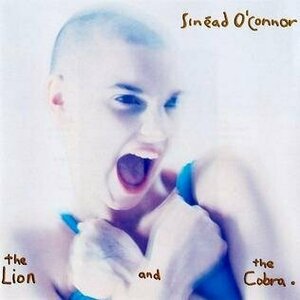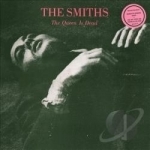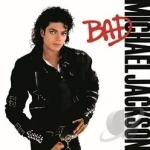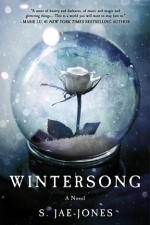Shirley Manson recommended The Lion and the Cobra by Sinead O'Connor in Music (curated)
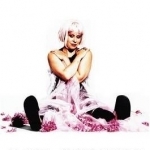
Breaking Glass Barefoot
Book
Hazel O'Connor has loved and been loved, but her generosity and spirit of adventure have often come...

My Old Man by I Am the Polish Army
Album Watch
From the privacy of a dorm room in 2005 to the streets of Brooklyn in 2016, I Am The Polish Army has...

Ode to Color: The Ten Essential Palettes for Living and Design
Book
Internationally renowned textile designer Lori Weitzner presents a novel, layered perspective on the...

Lone Star Nation: How a Ragged Army of Volunteers Won the Battle for Texas Independence - And Changed America
Book
From bestselling historian and long-time Texan H. W. Brands, a richly textured history of one of the...
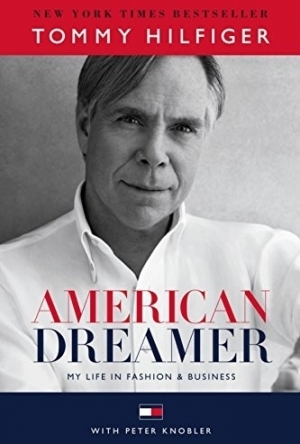
American Dreamer: My Life in Fashion & Business
Peter Knobler and Tommy Hilfiger
Book
In this tale of grit and glamour, setbacks and comebacks, business and pop culture icon Tommy...
Brett Anderson recommended The Queen Is Dead by The Smiths in Music (curated)
Natasha Khan recommended Bad by Michael Jackson in Music (curated)
Goddess in the Stacks (553 KP) rated Wintersong in Books
Dec 27, 2018
You'll recognize a line or two from the movie. The fairies still bite. The Goblin King is still beautiful and angular and strange. Liesl's after a stolen sibling. But Liesl and her family live in rural, probably 18th century Bavaria. She is not a spoiled, baby-sitting half-sister. Her grandmother has taught her the old stories, and unbeknownst to her, she's played music for The Goblin King her entire childhood.
The first book concerns Liesl's first foray into the Underground to save her sister when The Goblin King steals her to be his bride. This is where the acid trip starts. If you're familiar with Labyrinth, remember the ballroom scene? With people whirling about and appearing and disappearing and mirrors and the sense of disorientation as it all falls apart? Yeah, that's basically the entire time in the Underground. Though there is a ball scene, and it is especially trippy.
While Liesl manages to save her sister (that's a spoiler, but it isn't much of one), she has a harder time saving herself. Whether she actually does or not could be debated.
The second book of the duology, Shadowsong, has an interesting author's note in the front of it. The author first gives a content warning for self-harm, suicidal ideations, addiction, and reckless behaviors. She goes on to say Liesl has bipolar disorder, and further, that so does she. (The author.) She says Wintersong was her bright mirror, and Shadowsong her dark one. I can see that. Wintersong is a much happier book than Shadowsong, but the story would be incomplete without both books. Wintersong does end in a satisfactory conclusion, but Shadowsong just completes the tale in a way that I, at least, really enjoyed.
Shadowsong also contains more throwbacks to the movie - she falls and is caught by goblin hands; goblins form a giant face that talks to her about the old laws. These things don't happen in the same scene, though.
I loved the elements of music woven throughout the story; Liesl is a composer, and music - her music - is almost a character in its own right. It's definitely a huge plot element. It's in her connection to her brother, and her connection to The Goblin King. It's her way into the Underground, and her way out, and her way to reach back in.
It's an enchanting duology; I don't know if it would be as good for someone who didn't love Labyrinth the way I do. If you dislike the movie, I would probably advise against reading these. But if you like it or have simply never seen it, these would be good, atmospheric books to read in the dead of winter.
You can read all my reviews at http://goddessinthestacks.com
Goddess in the Stacks (553 KP) rated Shadowsong (Wintersong #2) in Books
Dec 27, 2018
You'll recognize a line or two from the movie. The fairies still bite. The Goblin King is still beautiful and angular and strange. Liesl's after a stolen sibling. But Liesl and her family live in rural, probably 18th century Bavaria. She is not a spoiled, baby-sitting half-sister. Her grandmother has taught her the old stories, and unbeknownst to her, she's played music for The Goblin King her entire childhood.
The first book concerns Liesl's first foray into the Underground to save her sister when The Goblin King steals her to be his bride. This is where the acid trip starts. If you're familiar with Labyrinth, remember the ballroom scene? With people whirling about and appearing and disappearing and mirrors and the sense of disorientation as it all falls apart? Yeah, that's basically the entire time in the Underground. Though there is a ball scene, and it is especially trippy.
While Liesl manages to save her sister (that's a spoiler, but it isn't much of one), she has a harder time saving herself. Whether she actually does or not could be debated.
The second book of the duology, Shadowsong, has an interesting author's note in the front of it. The author first gives a content warning for self-harm, suicidal ideations, addiction, and reckless behaviors. She goes on to say Liesl has bipolar disorder, and further, that so does she. (The author.) She says Wintersong was her bright mirror, and Shadowsong her dark one. I can see that. Wintersong is a much happier book than Shadowsong, but the story would be incomplete without both books. Wintersong does end in a satisfactory conclusion, but Shadowsong just completes the tale in a way that I, at least, really enjoyed.
Shadowsong also contains more throwbacks to the movie - she falls and is caught by goblin hands; goblins form a giant face that talks to her about the old laws. These things don't happen in the same scene, though.
I loved the elements of music woven throughout the story; Liesl is a composer, and music - her music - is almost a character in its own right. It's definitely a huge plot element. It's in her connection to her brother, and her connection to The Goblin King. It's her way into the Underground, and her way out, and her way to reach back in.
It's an enchanting duology; I don't know if it would be as good for someone who didn't love Labyrinth the way I do. If you dislike the movie, I would probably advise against reading these. But if you like it or have simply never seen it, these would be good, atmospheric books to read in the dead of winter.
You can read all my reviews at http://goddessinthestacks.com
